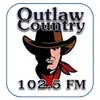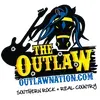Outlaw country Live Radio Stations
Radio Stations
Choose a Genre
Outlaw Country: The Rebel Spirit of American Music
Outlaw country is a genre that emerged in the 1960s and 1970s, born out of a reaction to the growing commercialism of mainstream country music. With its gritty sound, rebellious attitude, and themes that speak to freedom, individualism, and anti-authoritarianism, outlaw country carved out a unique space in the music world. The genre was a bold departure from the polished, mainstream Nashville sound, pushing boundaries and creating a lasting impact on the evolution of country music.
The Roots of Outlaw Country: A Rebellion Against the Nashville Sound
At its core, outlaw country represents a rebellion. The genre was pioneered by artists like Waylon Jennings, Willie Nelson, and Johnny Cash, who rejected the slick, commercialized production of Nashville in favor of a more raw and authentic style. These artists believed that country music needed to return to its roots, and they embraced a sound that was unrefined, heartfelt, and often deeply personal.
The outlaw country movement stood in stark contrast to the country music industry at the time, which was becoming increasingly commercialized and mainstream. Rather than following the safe, polished conventions of Nashville, outlaw country musicians chose to embrace a rebellious spirit, often writing lyrics that explored themes such as drug use, freedom, rebellion, and anti-establishment sentiments. Their music became a voice for those who felt disconnected from the mainstream.
Icons of Outlaw Country: The Legends Who Defined a Genre
The trailblazers of outlaw country are some of the most iconic figures in American music history. Johnny Cash, with his deep, gravelly voice and rugged style, became a symbol of the outlaw country ethos. His songs, such as "Folsom Prison Blues" and "I Walk the Line," celebrated themes of defiance, struggle, and redemption.
Willie Nelson, with his distinct voice and laid-back persona, became synonymous with the outlaw country movement. His albums like Red Headed Stranger and Wanted! The Outlaws helped define the genre and solidified his place as a countercultural icon. Waylon Jennings, with his strong, raw sound and distinctive style, also played a crucial role in shaping outlaw country. His album Honky Tonk Heroes remains a defining work in the genre, featuring songs that became anthems of independence and rebellion.
These artists, along with others like Merle Haggard and Townes Van Zandt, embraced a blend of traditional country, rock, and folk influences, laying the groundwork for future generations of musicians who would follow in their footsteps.
Outlaw Country Today: A Genre That Refuses to Die
Although outlaw country may have started as a reactionary movement, it has since become a mainstay in the world of country music. Today, many radio stations specialize in playing outlaw country, offering listeners a chance to dive into both classic tunes from the genre's pioneers and new releases that continue to embody its rebellious spirit. Artists like Sturgill Simpson, Tyler Childers, and Chris Stapleton are breathing new life into the genre, while staying true to its roots of authenticity and independence.
Outlaw country has also left its mark on other genres, influencing a wide range of musical styles from punk rock to Americana and folk. The genre’s raw, unfiltered sound resonates with fans of all ages, providing a soundtrack for those who still believe in the values of individualism and freedom that outlaw country represents.
Outlaw Country Culture: Fashion, Attitude, and Counterculture
The influence of outlaw country extends beyond just the music – it is also a culture that encompasses fashion, attitude, and a deep connection to counterculture movements. Outlaw country artists and fans alike embrace a distinctive style that often includes cowboy boots, denim jackets, and wide-brimmed hats. This rugged, no-nonsense aesthetic reflects the tough, rebellious spirit of the music itself.
Outlaw country has also been closely associated with countercultural movements like hippie and biker culture, with its themes of nonconformity, freedom, and a rejection of authority resonating deeply with those who sought to challenge societal norms. The genre has served as the soundtrack to protests, as well as a form of resistance against political and social systems perceived as oppressive.
A Genre That Endures
Outlaw country is more than just a musical style – it is a way of life that celebrates freedom, rebellion, and the enduring spirit of independence. From its roots in the 1960s and 1970s to its continued influence on contemporary music, the genre has proven that it is not bound by trends or mainstream tastes. Whether you are a longtime fan or new to the world of outlaw country, there is always something raw and genuine to discover in this rebellious genre that refuses to be tamed.
Outlaw country’s blend of authenticity, raw emotion, and anti-establishment sentiment continues to resonate with listeners around the world. Its impact on the music industry and beyond is undeniable, and as long as there are those who value individualism and authenticity, outlaw country will continue to thrive.
Outlaw country is a genre that emerged in the 1960s and 1970s, born out of a reaction to the growing commercialism of mainstream country music. With its gritty sound, rebellious attitude, and themes that speak to freedom, individualism, and anti-authoritarianism, outlaw country carved out a unique space in the music world. The genre was a bold departure from the polished, mainstream Nashville sound, pushing boundaries and creating a lasting impact on the evolution of country music.
The Roots of Outlaw Country: A Rebellion Against the Nashville Sound
At its core, outlaw country represents a rebellion. The genre was pioneered by artists like Waylon Jennings, Willie Nelson, and Johnny Cash, who rejected the slick, commercialized production of Nashville in favor of a more raw and authentic style. These artists believed that country music needed to return to its roots, and they embraced a sound that was unrefined, heartfelt, and often deeply personal.
The outlaw country movement stood in stark contrast to the country music industry at the time, which was becoming increasingly commercialized and mainstream. Rather than following the safe, polished conventions of Nashville, outlaw country musicians chose to embrace a rebellious spirit, often writing lyrics that explored themes such as drug use, freedom, rebellion, and anti-establishment sentiments. Their music became a voice for those who felt disconnected from the mainstream.
Icons of Outlaw Country: The Legends Who Defined a Genre
The trailblazers of outlaw country are some of the most iconic figures in American music history. Johnny Cash, with his deep, gravelly voice and rugged style, became a symbol of the outlaw country ethos. His songs, such as "Folsom Prison Blues" and "I Walk the Line," celebrated themes of defiance, struggle, and redemption.
Willie Nelson, with his distinct voice and laid-back persona, became synonymous with the outlaw country movement. His albums like Red Headed Stranger and Wanted! The Outlaws helped define the genre and solidified his place as a countercultural icon. Waylon Jennings, with his strong, raw sound and distinctive style, also played a crucial role in shaping outlaw country. His album Honky Tonk Heroes remains a defining work in the genre, featuring songs that became anthems of independence and rebellion.
These artists, along with others like Merle Haggard and Townes Van Zandt, embraced a blend of traditional country, rock, and folk influences, laying the groundwork for future generations of musicians who would follow in their footsteps.
Outlaw Country Today: A Genre That Refuses to Die
Although outlaw country may have started as a reactionary movement, it has since become a mainstay in the world of country music. Today, many radio stations specialize in playing outlaw country, offering listeners a chance to dive into both classic tunes from the genre's pioneers and new releases that continue to embody its rebellious spirit. Artists like Sturgill Simpson, Tyler Childers, and Chris Stapleton are breathing new life into the genre, while staying true to its roots of authenticity and independence.
Outlaw country has also left its mark on other genres, influencing a wide range of musical styles from punk rock to Americana and folk. The genre’s raw, unfiltered sound resonates with fans of all ages, providing a soundtrack for those who still believe in the values of individualism and freedom that outlaw country represents.
Outlaw Country Culture: Fashion, Attitude, and Counterculture
The influence of outlaw country extends beyond just the music – it is also a culture that encompasses fashion, attitude, and a deep connection to counterculture movements. Outlaw country artists and fans alike embrace a distinctive style that often includes cowboy boots, denim jackets, and wide-brimmed hats. This rugged, no-nonsense aesthetic reflects the tough, rebellious spirit of the music itself.
Outlaw country has also been closely associated with countercultural movements like hippie and biker culture, with its themes of nonconformity, freedom, and a rejection of authority resonating deeply with those who sought to challenge societal norms. The genre has served as the soundtrack to protests, as well as a form of resistance against political and social systems perceived as oppressive.
A Genre That Endures
Outlaw country is more than just a musical style – it is a way of life that celebrates freedom, rebellion, and the enduring spirit of independence. From its roots in the 1960s and 1970s to its continued influence on contemporary music, the genre has proven that it is not bound by trends or mainstream tastes. Whether you are a longtime fan or new to the world of outlaw country, there is always something raw and genuine to discover in this rebellious genre that refuses to be tamed.
Outlaw country’s blend of authenticity, raw emotion, and anti-establishment sentiment continues to resonate with listeners around the world. Its impact on the music industry and beyond is undeniable, and as long as there are those who value individualism and authenticity, outlaw country will continue to thrive.


